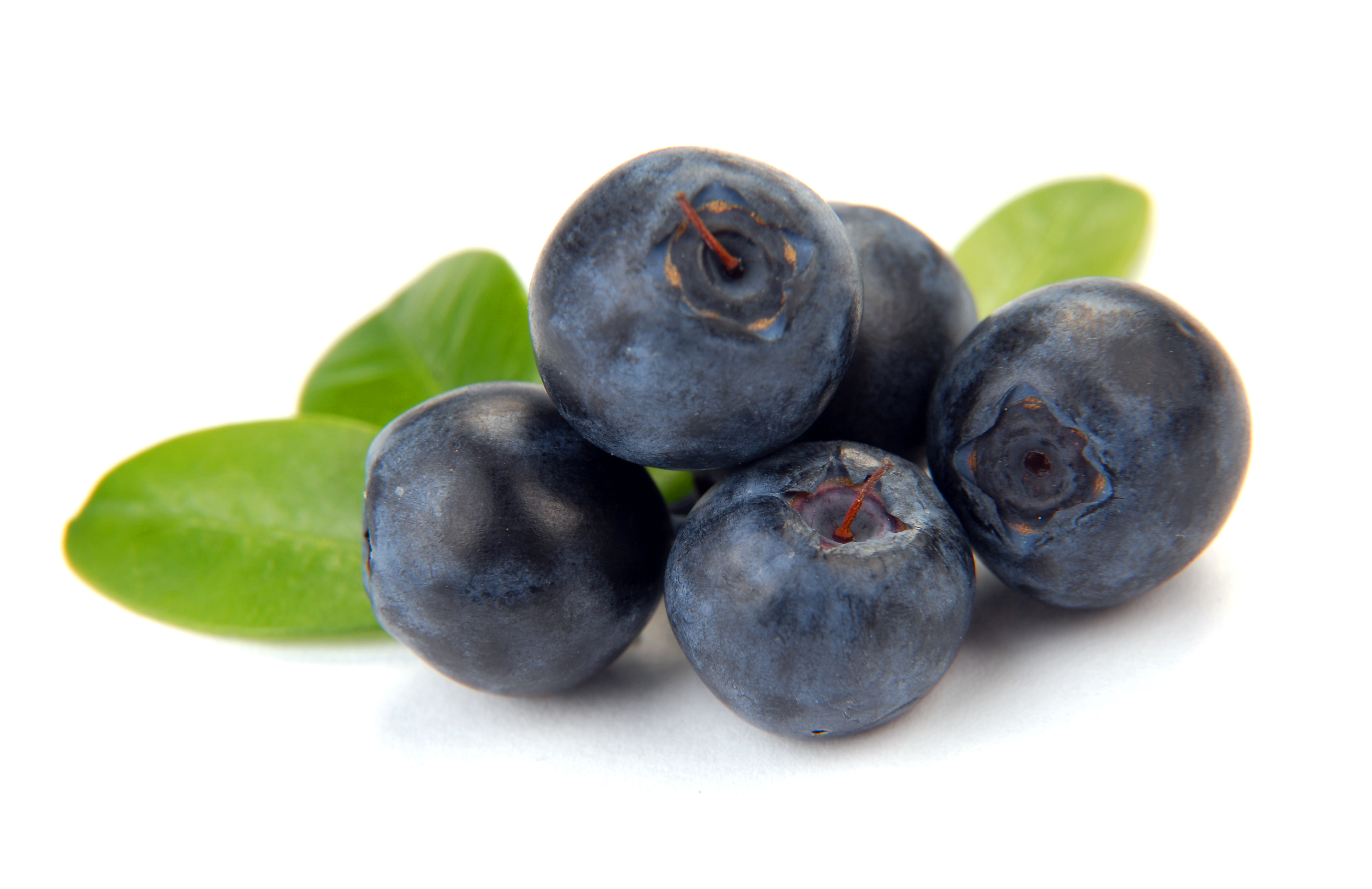What You Need to Know About Probiotics
Everyone has heard about probiotics…
…they have become a “buzzword” in the world of health and nutrition…
But what many people do not realize is that they are so much more than just pills that help your gut to stay healthy.

- Did you know that over 70% of your immune system is located in your digestive system?!
- Did you know that you have billions of living microorganisms in your digestive tract that are critical for maintaining the health of every part of your entire body?!
- The community of all of the bacteria, fungi, viruses, and protozoa living in your digestive tract make up the microbiome.
- Your microbiome manufactures more neurotransmitters than your brain (80-90% of your serotonin to be exact!) Every class of brain neurotransmitter has been found in the gut.
- You have 3.5-4 pounds of bacteria in your digestive system that help to:
- make vitamins
- protect against infection
- run your metabolism.
- The food you eat directly nourishes OR harms your microbiome.
- It can lead to illness (…depression, arthritis, brain fog, migraines, chronic fatigue, autoimmune illness, fibromyalgia, autism…) OR vibrant health.
Yes, you read correctly.
Depression.
Brain fog.
Autism.
Chronic fatigue.
Headaches.
Arthritis.
Metabolism.
There are so many benefits to your digestive system, immune system, metabolism, psychological well-being, and nutritional status that I cannot cover them all in one blog post! Instead, I am going to select a few highlights. Then I will share some of the best ways to get the right probiotics into your diet! (If you are interested in learning more, my professor wrote a fantastic book on the digestive system and the role of probiotics! http://digestivewellnessbook.com/index.html )
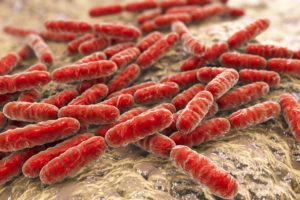
-
A probiotic is a specific type of bacteria or yeast. (Lactobacillus Acidophilus, Lactobacillus Reuteri, Bifidobacteria infantis, etc.)
-
Each type of probiotic has specific beneficial effects on the body and competes with disease-causing bacteria.
- Example: Lactobacillus Acidophilus
- prevents infections such as candida, E. coli, H. Pylori, salmonella
- prevents and treats antibiotic-associated diarrhea and traveler’s diarrhea
- aids digestion of lactose and dairy products
- improves nutrient absorption
- maintains integrity of intestinal tract
- prevents vaginal and urinary tract infections
- Example: Lactobacillus Acidophilus
-
Probiotics are able to reproduce in the intestines for ONLY a week or two, so it’s critical to eat them on a regular basis!
Probiotics and Diet
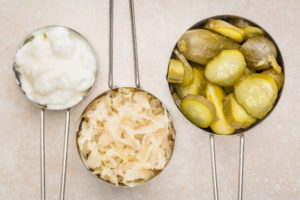
-
Any food that is cultured or fermented contains probiotics AND increased nutrients (since the probiotics manufacture nutrients for themselves, but we are able to benefit from them when we eat probiotic foods!)
-
For example:
-
yogurt, kefir, and cottage cheese are cultured, but milk is not
-
sauerkraut & pickles are fermented, but cabbage and cucumbers are not
-
-
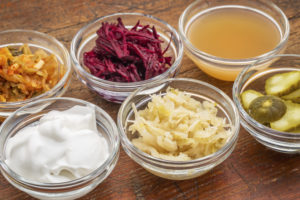
Examples of Probiotic Foods:
- yogurt (no sugar added is preferable)
- kefir (fermented milk – consistency is creamier than milk, thinner than Greek yogurt)
- cottage cheese
- raw sauerkraut (found in the refrigerated section OR homemade)
- pickles (found in the refrigerated section OR homemade)
- kimchi (spicy pickled cabbage, a staple in Korean cuisine)
- pickled vegetables (found in the refrigerated section OR homemade)
- miso (fermented soybeans, available as a soup or paste)
- raw apple cider vinegar (only with “The Mother” – Bragg’s Apple Cider Vinegar brand. Read more here)
- kombucha (fermented tea – found in numerous tasty flavors…. including varieties with plenty of caffeine 😉 )
Probiotic Supplements
While cultured and fermented foods are an awesome way to load up on healthy probiotic bacteria, they are not always available. In that case, a supplement is the next option. Supplements may be taken along with probiotic foods to provide an added diversity in the beneficial bacteria that populates your gut.
What to look for in a Probiotic Supplement:
- More “strains” of bacteria means more diversity, which is good. Make sure it at least contains Lactobacillus acidophilus and Bifidobacteria bifidum.
- Condition-specific: many supplements are designed for women, men, adults 65+, children, immune system, colon health, etc.
- Some contain prebiotics. While this is very good, some people can experience bloating.
- Refrigerated supplements are always best, however there are also some shelf-stable varieties that are convenient for travel.
- Number of organisms: 5-20 billion can be a good maintenance dose, 30-100 billion can be used for more intense dosages. Just be sure to ramp up your intake gradually.
PREbiotics and Diet
Prebiotics are a non-digestible form of dietary fiber that feeds and nourishes the probiotics.
Prebiotics travel through your stomach and small intestine undigested. When they reach the large intestine (colon), they undergo fermention, which enables the probiotic bacteria to proliferate. Think of it as fertilizer for your probiotics!
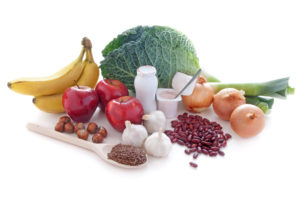
Examples of Prebiotic Foods:
- garlic, onions, bananas, asparagus, artichokes, bran, eggplant, leeks, legumes, rye, soybeans, wheat, chicory
Aim to eat lots of prebiotic foods along with your probiotic foods and supplements for the ultimate synergistic effect!
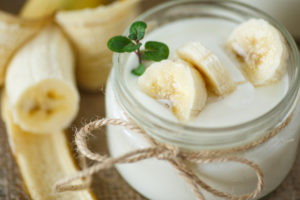
Probiotic Recipes!!
Homemade Yogurt (Dairy-Free)
*NOTE: This video says “coconut oil” but the actual recipe calls for “coconut MILK.” I have made this before and it was great!
Ingredients:
- 2 cans full-fat coconut milk
- 1.5 tbsp maple syrup (optional)
- 1 tsp vanilla extract (optional)
- 2 probiotic capsules
